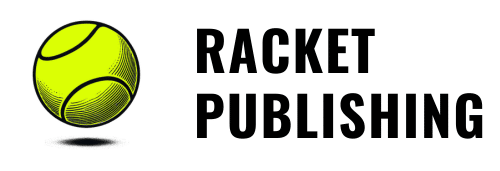
FAQ
Common queries and answers about working with us.
What is hybrid publishing?
Before answering that question, it’s important to define two terms. In traditional or legacy publishing, the publishers use skilled professionals to turn the author’s manuscript into printed book, ebooks, and audiobooks. If you think that this process involves a good chunk of change, trust your judgment. Authors receive a tiny percentage of their books’ royalties because legacy publishers take all of the risk.
In true self-publishing, authors absorbs all of the costs and financial risks. They attempt to do everything themselves: editing, proofreading, cover and interior design, indexing, and more. Books tend to look amateur, but authors keep the lion’s share of the proceeds.
Hybrid publishing serves as a middle ground between these two models. Think chocolate and peanut butter. Less metaphorically, the author pays the hybrid publisher’s staff to produce a book every bit as professional as those offered by traditional publishers. No, hybrid publishing isn’t cheap, but the final product is superb. Even better, authors retain the rights to their works and earn far more money per copy sold compared to working with Penguin, O’Reilly, and their ilk.
What do you mean by "boutique"?
Some large hybrid publishers handle dozens of full-length books at a time. They’re successful. The more power to them.
Racket, however, is more interested in quality over quantity. Rest assured: If you work with Racket, you’ll benefit from a bespoke approach and loads of individual attention.
Does Racket work with organizations as well as authors?
Yes. Back when Racket founder Phil Simon ran Motion Publishing, he and his team turned two companies’ blogs into proper texts. They are Information Development Using MIKE2.0 and 101 Lightbulb Moments in Data Management. Racket will follow the same model.
Does Racket just publish books?
If I work with Racket, who ultimately owns the intellectual property?
You do. Unlike some subsidy and hybrid presses, the author retains the rights to all IP. Should you want to do one or more of the following, have at it:
- Distribute it to others.
- Pursue international translations independently via our partner Dropcap.
- Shop your book to agents traditional publishers.
- Offer custom editions to third parties.
What is RacketHub?
RacketHub is an insanely powerful, flexible, proven, and intuitive book management system built for authors, coaches, ghostwriters, and publishers. Learn more here.
What's the deal with book royalties?
Racket Publishing provides writing, publishing, and coaching services. It does not receive royalties from your future book sales. Your royalties will far exceed those granted by traditional publishers—sometimes by an order of magnitude.
Deals that you strike with foreign publishers typically resemble those from traditional ones. That is, there’s an advance against future royalties.
Do I have to publish my book under the Racket imprint?
No, you do not.
Can I record our coaching sessions?
Absolutely. I can or you can. Watch them as many times as you like.
What book formats are available to me if I work with Racket?
All of them: hardcover, paperback, ebook, and audiobook.
Do I have to work with Racket team members simultaneously?
No, you do not. You and the team can do a great deal of the work asynchronously. Still, sometimes it makes sense to share a screen, talk on the phone, and work synchronously.
I want to write a fiction book. Can you help?
Congrats, and best of luck to you.
Racket specializes in non-fiction writing. Still, The Author Flywheel: How to Intelligently and Affordably Market Your Book will help you raise awareness of your book and, ultimately, goose sales.
Talk to me about pricing and billing.
Pricing
At a high level, there are two ways to price long-form writing projects:
- Flat rate.
- Hourly.
To be sure, each approach inheres different pros and cons. For two reasons, Racket prefers the second approach. First, precisely estimating how much time long-form writing projects will take is impossible. There are just too many variables at play.
Second, working on an hourly basis just seems fairer to all parties concerned. For example, consider a ghostwriting project for a full-length book. A decent—if imperfect—estimate for the amount of time required to research, write, and edit the manuscript is 300 hours. To state the obvious, however, not all clients are created equal. One who dillydallies and constantly changes his mind could require twice as much time. An organized, motivated one might need only 225.
Billing
First-time Racket clients prepay for a fixed number of hours—typically 20 to 40 at a time. (Think of it like keeping an attorney on retainer.) Once those hours lapse, they purchase additional blocks.
Repeat clients can opt to continue this arrangement, or they can can pay in stages—starting with an initial deposit to kick off the project. After that point, they can choose to pay when Racket meets agreed-upon milestones.
Which tools does Racket use with its clients?
The main one is RacketHub. Check out this page for information on some of the others.
Talk to me about ChatGPT and other generative artificial intelligence tools.
Racket discourages its authors from using generative AI tools for writing and research. They can, however, be useful for brainstorming or summarizing vast amounts of information, such as interviews and generally boring academic papers.
I already wrote my book or manuscript but just need publishing assistance. Can you help me?
Yes. Racket offers project management and other services to turn your manuscript into a professional book.
